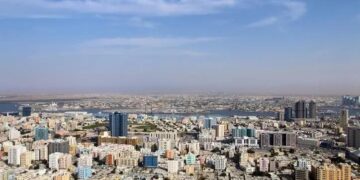In the United Arab Emirates, there are around 600 schools. Which is the best option for your child?
Finding the correct curriculum, as well as a school that meets your budget and is highly ranked, can be a stressful and time-consuming task. If you’re new to the UAE or just starting your search for the ideal school for your child, here’s a thorough reference to the UAE’s educational system and admissions procedure.
Education authorities in the UAE
Before you begin shortlisting schools, you must first comprehend the framework of the UAE’s educational system.
The Ministry of Education (MOE) is in charge of all educational institutions in the UAE, including public and private schools, at the federal level. For private schools, however, the MOE merely defines the curriculum for Arabic, social studies, and Islamic studies, as well as providing general school rules. According to the official UAE government website, u.ae, it does not direct private schools on the rest of their curriculum.
While the Ministry of Education is based at the federal level, local bodies control the education sector in each Emirate. The Knowledge and Human Development Authority (KHDA) in Dubai, for example, is in charge of the growth and quality of private education institutions in the Emirate. The Abu Dhabi Department of Education and Knowledge is in charge of overseeing and regulating the education industry in Abu Dhabi (ADEK). The Sharjah Private Education Authority (SPEA) is in charge of private educational establishments in Sharjah.
MOE governs the Emirates of Umm Al Quwain, Ras Al Khaimah, Ajman, and Fujairah.
Knowing which authority your favorite school is under is crucial because each of these authorities establishes the Emirate’s educational guidelines. This would include school ratings, a cap on the maximum tuition costs a school can charge, and oversight of all of the school’s buildings and services.
Also Read: Everything you need to know about Dubai’s government schools
Finding the right school curriculum for your child
Choosing the correct curriculum for your child can go a long way toward helping them develop their skills; some curricula emphasize an analytical, application-based approach, while others emphasize a more rigorous, theory-based approach. The following are the most popular curricula in the UAE, based on student enrolment:
- UK curriculum
- Indian curriculum
- US curriculum
- IB curriculum
- Ministry of Education programme (public schools)
Which school fits your budget?
School fees can make up a significant portion of your monthly and annual budget, so finding a school that fits your budget can be quite beneficial to keeping track of your expenses. Aside from tuition fees, which might arise as your child moves from primary to middle to high school, you’ll also need to account for extra-curricular activities.
You can view the ‘The School Costs Fact Sheet’ for schools in Dubai, which is a one-page report that gives parents a breakdown of all the fees a school may charge.
For schools in Abu Dhabi, visit the online directory of schools on the official Abu Dhabi government services website Tamm here – https://www.tamm.abudhabi/journeys/get-education/schools?byMyAddress=false&loading=false&loading=false&loading=false&loading=false&loading=false&loading=false&loading=false&loading=false
If you’re looking for a school in another Emirate, you can always contact the school on your shortlist and inquire about their fees via their website or by calling the school’s administration office.
What is a school rating?
In their respective Emirates, the KHDA and ADEK perform school inspections, and the ratings give parents a clearer sense of the quality of education in each institution.
The ADEK rating system uses the ‘Irtiqaa’ rating system, in which school inspectors evaluate the institution’s overall education quality as well as its effectiveness over the course of a four-day inspection and rate it on a scale of six – very weak, weak, acceptable, and good, very good, and outstanding.
Private school Irtiqaa ratings can be found on the Tamm Abu Dhabi government webpage at https://www.tamm.abudhabi/journeys/get-education/schools?byMyAddress=false&loading=false.
Every year, the KHDA publishes school inspection reports in which schools are rated on a scale of five: ‘Outstanding,’ ‘Very good,’ ‘Good,’ ‘Acceptable,’ or ‘Weak.’ A ‘Parent Report’ component is also included in the reports, which provides parents with specific information about the quality of education given by a school, allowing them to make more educated selections.
You may get inspection reports for various schools in Dubai from the past few years here: https://web.khda.gov.ae/en/Education-Directory/Schools
How to choose the right school?
Now that you have a basic understanding of the UAE education system, the best way to determine whether a school is appropriate for your child is to conduct research first, then visit the schools on your shortlist and request a school tour to gain a better understanding of which school is best for your child.
You’ll need to present specific documentation during your child’s admission procedure once you’ve decided on a school.
Buying stationery
The next important task for parents and children after the enrolment process is to get their stationery in order.
If you don’t have a set budget or don’t know where to shop, school bags, craft supplies, pencil boxes, and other stationery goods can add up quickly.
Making a list, reviewing your stock at home, and allocating your budget are all simple chores that can help you save money.
Don’t skip on the right shoes
Wearing ill-fitting shoes can cause a variety of issues for your child, including blisters, ulcers, and toe abnormalities because children’s feet lack muscle strength and are prone to hypermobility.






























































